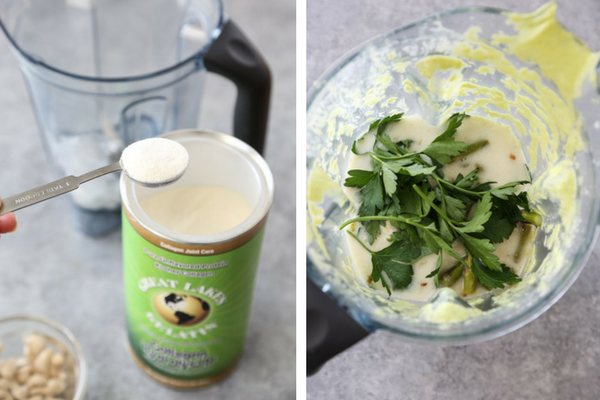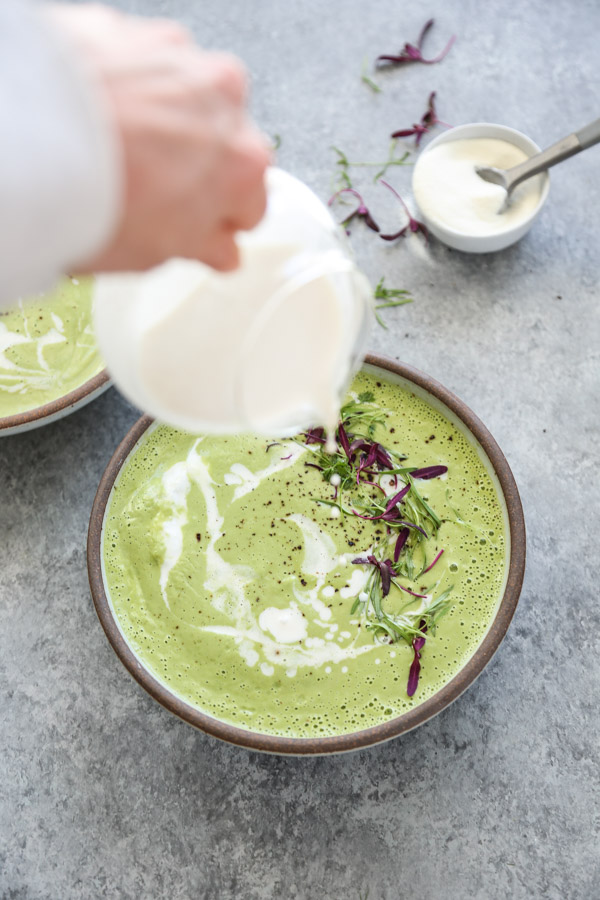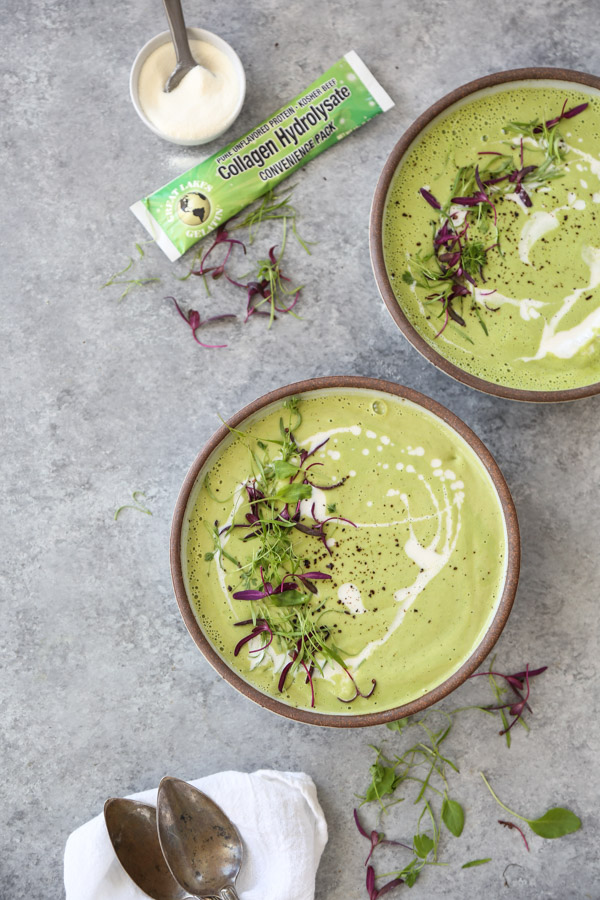When I was little, I developed a serious “cream of” soup fetish.
Those of you who know a thing or two about my crunchy granola childhood might assume that my mother was slaving in the kitchen, infusing her own homemade bone broth with organic heavy cream. In this instance, and perhaps this instance only, you would be wrong.
I was a Cambell’s can addict. The gloppier, the better.
While today cream of asparagus soup might be the only way I could justify the texture and additives, back then a vegetable didn’t even need to be part of the equation. Cream of Chicken was, in fact, my favorite varietal.
I can put a clear timestamp on when I developed this creamed soup diet. It was immediately after we moved from the burbs to the big city. And I can only presume that my mom was too busy with the change of scenery and identifying a new health food store close to our apartment to be overly stringent about sourcing soup from the local bodega in the interim. That, or as we became more cosmopolitan, our tastes just got trashier to compensate.
Anyhow, thus began a lifelong love affair with creamy soups. And more recently, a dedication to making them greener, less gloppy, and ten times more nutritious than what came out of those cans.
Over the last few weeks, I’ve been in the slow and steady process of reintroducing high FODMAP foods to my diet, and as part of the healing phase of my SIBO protocol, trying to fortify my gut at the same time.
It was recommended to me that I start with the ingredients that I missed most. So shortly after introducing avocado, tahini, and small amounts of garlic and onion, I moved right along to asparagus. Because this time of year, I start craving those tender stalks like nothing else.
While it’s also recommended that you reintroduce foods in their purest form (like any elimination diet), I couldn’t help but get a little creative and use it as a base for the dairy-free modern “cream of” soup of my dreams.
In terms of easing my gut back onto high FODMAP foods, this soup had two big things going for it. First, it’s warm and pureed. This makes things easier on my digestive system and helps me assimilate nutrients. Some people have problems digesting FODMAPS regardless of any critters creating the trouble, so it’s always best to ease into it with something that’s already partially broken down by your stove and the blades of your blender.
Second, the secret ingredient of this soup is something I’ve been adding a lot of to my meals in an effort to repair my gut lining: Great Lakes Collagen Hydrolysate.
The benefits of collagen supplements are similar to that of bone broth (since it’s one of the main components), but doesn’t require any of the clean-up. The amino acids involved are big workhorses for rebuilding tissue, hence why collagen is so good for healing leaky gut and fortifying your hair, nails and teeth. Great Lakes Gelatin was the first brand I started using way back in 2015 during The Wellness Project, when I needed to heal my gut from my first imbalance, that pesky parasite.
These days I add their easy to-go packets to my smoothies and my tea, especially when I’m traveling. I also love cooking with it and adding even more healing properties to green elixirs like this soup. My secret ingredient is added to both the broth and the condiment on top with the help of a little full-fat coconut milk that makes both components extra creamy. This recipe is perfectly portioned to get a full collagen serving in each bowl.
Even if you never removed asparagus from your life, this cream of asparagus soup recipe is the perfect way to welcome it back into the forefront now that spring is (maybe?) finally here!
With health and hedonism,
Phoebe
p.s. Today is the LAST DAY to take advantage of Early Bird Pricing for the 4 Weeks to Wellness Course! More details here and at the bottom of this post. Sign-up by 10pm EST before prices increase!
Dairy-Free Cream of Asparagus Soup with Coconut Collagen Drizzle
Ingredients
- 1/4 cup raw cashews
- 1 bunch asparagus
- 1/4 cup coconut oil
- 1 large fennel bulb thinly sliced
- One 14.5-ounce can full fat coconut milk
- Sea salt
- 2 tablespoons lemon juice divided
- 1/2 cup Great Lakes Gelatin Collagen Hydrolysate divided
- 1/2 cup loosely packed parsley leaves plus more for garnish
Instructions
- In a medium bowl, cover the cashews with boiler water. Allow to sit for 20 minutes, then drain and set aside.
- Meanwhile, trim the asparagus by removing the tough bottom inch, or any section that is thick, white and hard to cut through. (see note)
- In a large stockpot or Dutch oven, heat the coconut oil over a medium-high flame. Add the fennel and cook, stirring occasionally, until translucent and beginning to brown, about 5 minutes. Stir in the chopped asparagus and cook for 2 minutes more, until fragrant and vibrant.
- Reserve two tablespoons of the coconut cream from the top of the can and pour the remaining liquid into the soup pot along with 1 teaspoon sea salt. Fill the can with water, swishing it around to get all the remaining coconut milk off the sides and add to the pot (about 2 cups). Bring to a simmer and remove when the asparagus is tender, about 2 minutes.
- Off the heat stir in 1 tablespoon lemon juice, 1/4 cup Great Lakes Gelatin Collagen Hydrolysate, and the parsley.
- Meanwhile, add the reserved coconut cream, soaked cashews, remaining lemon juice and collagen, 1/4 cup of water and 1/2 teaspoon sea salt to a high-speed blender or small food processor and puree until smooth. Transfer to a serving bowl
- Puree the soup until smooth using an immersion blender or the same high speed stand blender.
- Ladle the soup into bowls and drizzle with the coconut collagen cream. Garnish with additional parsley or any herb you like.
Need help finding lifestyle changes that last? Let’s work together to find your path forward. My 4 Weeks to Wellness Course might just change your life. With a month’s worth of recipes that are gluten, dairy, corn, soy and refined sugar free, not to mention tasty AF, it’s a perfect way to explore your food sensitivities, clear your skin, and heal your digestive system.










Would you also recommend collagen as a good way of building back your gut after a course of antibiotics?
it can’t hurt! more for leaky gut but antibiotics could lead to that longterm